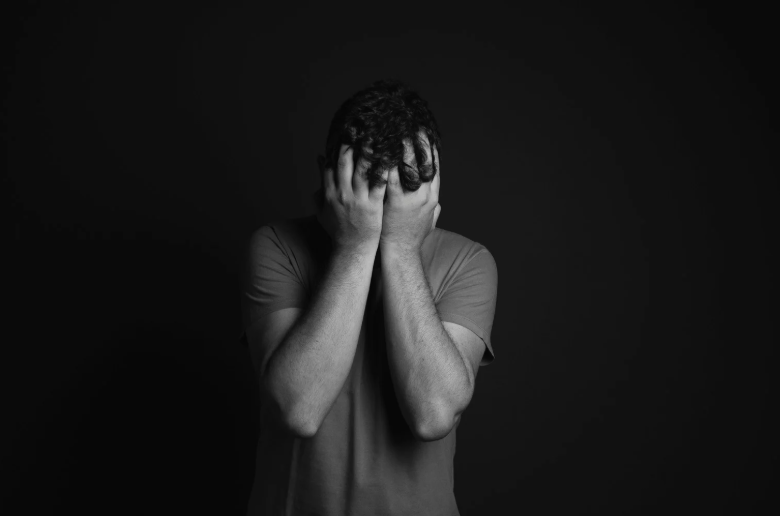
Anxiety disorder is one of the most common yet misunderstood mental health conditions. It goes beyond occasional nervousness and can interfere with your work, relationships, and daily life. According to the National Institute of Mental Health, over 30% of U.S. adults experience an anxiety disorder at some point in their lives.
At Insightful Psychiatry, we help individuals struggling with anxiety regain control of their minds and their lives. In this article, we’ll explore the different types of anxiety disorders, their causes, signs, and the treatments that work—along with how you can take the first step toward recovery.
What Is an Anxiety Disorder?
An anxiety disorder is a chronic mental health condition that causes excessive fear, worry, or dread, often without a clear or logical trigger. While it’s normal to feel anxious occasionally, someone with an anxiety disorder experiences these emotions intensely and persistently, often to the point that it affects their ability to function.
There are several types of anxiety disorders:
- Generalized Anxiety Disorder (GAD)
- Panic Disorder, marked by recurring panic attacks
- Social Anxiety Disorder, involving fear of social situations
- Specific Phobias, like fear of flying or heights
- Separation Anxiety Disorder
These disorders can exist alone or in combination with other conditions like depression or PTSD, compounding their effects.
Common Symptoms of Anxiety
The symptoms of anxiety can vary, but commonly include:
- Persistent worrying
- Trouble concentrating
- Restlessness or irritability
- Muscle tension
- Rapid heartbeat or shortness of breath
- Fatigue
- Trouble sleeping
- Avoiding anxiety-inducing situations
For those with panic disorder, these symptoms may escalate into full-blown panic attacks with chest pain, dizziness, and an intense fear of dying.
Causes of Anxiety Disorders
Anxiety doesn’t usually have a single cause. Instead, it results from a combination of factors:
- Genetics – Anxiety often runs in families
- Brain Chemistry – Imbalances in neurotransmitters like serotonin and dopamine
- Environmental Stressors – Traumatic events, abuse, neglect, or chronic stress
- Health Issues – Conditions like heart problems or thyroid disorders can mimic or worsen anxiety symptoms
The MentalHealth.gov portal emphasizes that early-life stress and personality traits like perfectionism may also play a role.
Diagnosing Anxiety
Diagnosis typically involves a comprehensive evaluation by a mental health professional. This may include:
- Clinical interviews
- Standardized questionnaires
- Medical testing to rule out physical issues
Left untreated, anxiety may worsen and lead to complications like substance abuse or depression, which is why seeking help early is crucial.
Proven Treatments for Anxiety
The good news? Anxiety is highly treatable. At Insightful Psychiatry, we create personalized care plans that reflect your lifestyle, values, and unique symptoms.
Psychotherapy
The most effective approach is usually Cognitive Behavioral Therapy (CBT), which teaches individuals to challenge and reframe negative thinking patterns. This evidence-based therapy has been endorsed by both the Anxiety & Depression Association of America (ADAA) and the National Institute of Mental Health.
Other helpful methods include:
- Mindfulness-based therapy
- Exposure therapy for phobias and panic
- Acceptance and Commitment Therapy (ACT)
Medication
Medication can also be beneficial, especially for moderate to severe symptoms. Options may include:
- SSRIs (e.g., sertraline or fluoxetine)
- Benzodiazepines for short-term use
- Beta-blockers to manage physical symptoms
Medication is often most effective when combined with therapy and monitored closely by your provider.
Lifestyle Adjustments
Supporting your mental health with simple lifestyle habits can enhance treatment:
- Regular physical activity
- A balanced diet
- Mindfulness or meditation
- Limiting caffeine or alcohol
- Good sleep hygiene
These practices are backed by public health organizations like CDC.gov and can support long-term recovery.
When to Seek Help
If anxiety is interfering with your ability to work, maintain relationships, or feel at peace, it’s time to seek help. Many people hesitate due to stigma or fear, but as Wikipedia notes, the earlier treatment begins, the more successful it can be.
Insightful Psychiatry is here to guide you from confusion to clarity—with compassion and proven results.
How Insightful Psychiatry Can Help
At Insightful Psychiatry, we specialize in treating anxiety disorders with a whole-person approach. We take time to understand not just your symptoms, but your goals, your background, and the root causes of your distress. Our licensed providers offer therapy, medication management, and continuous support tailored to your needs.
We also provide treatment for related conditions like bipolar disorder, depression, PTSD, and more—through a comprehensive specialty service network that supports you every step of the way.
We serve clients across Washington, New York, Florida, Maryland, and Colorado, and offer telepsychiatry services for added convenience and privacy.
Ready to take the first step toward healing?
📞 Call us at (206) 620-1222
📩 Or Contact Insightful Psychiatry Today
Let us help you find peace, balance, and the tools to move forward with confidence.

